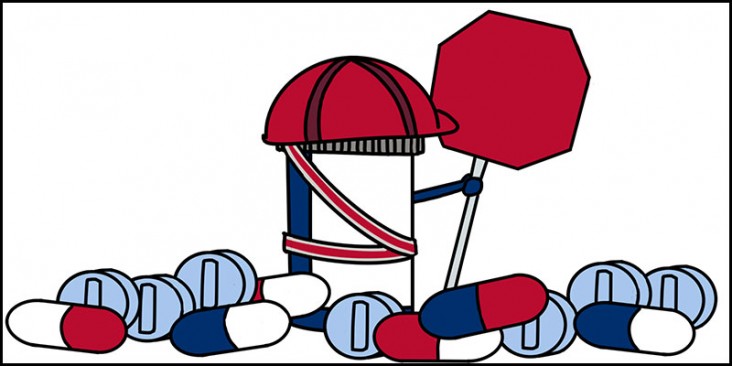- What We Do
- Agriculture and Food Security
- Democracy, Human Rights and Governance
- Economic Growth and Trade
- Education
- Ending Extreme Poverty
- Environment and Global Climate Change
- Gender Equality and Women's Empowerment
- Global Health
- Water and Sanitation
- Working in Crises and Conflict
- U.S. Global Development Lab

Antimicrobial resistance (AMR) is a major public health concern that has the potential to jeopardize our collective ability to treat and prevent a multitude of infections caused by bacteria, parasites, viruses, and fungi. Unless efforts are successful to address the AMR threat, the impact of all other health investments will be greatly diminished or negated. WHO estimates that more than half of all medicines are prescribed, dispensed or sold inappropriately, and that half of all patients fail to take them correctly. The overuse, underuse or misuse of medicines results in wastage of scarce resources and widespread health hazards. While AMR is a global problem, low- and middle-income countries are particularly at risk as local health systems are often ill-equipped to address the major complications associated with resistant infections or the multidimensional drivers which cause them.
AMR develops when microorganisms – bacteria, parasites, viruses, or fungi – no longer respond to one or multiple medicines designed to treat them. When resistance occurs, treatment becomes less effective, patients remain ill and infectious longer, and the cost and length of
USAID is combating the emergence and spread of AMR through the Global Health Security Agenda in alignment with WHO’s Global Action Plan on AMR [PDF, 235KB] and in support of the US National Strategy [PDF, 482KB] and Action Plan for Combating Antibiotic-Resistant Bacteria [PDF, 481KB](CARB). One of the CARB goals (Goal 5) is to improve international collaboration and capacity for antibiotic-resistance prevention, surveillance, and control, as well as antibiotic research and development. As part of this overall effort, USAID is leading implementation of the National Action Plan for Combating Multidrug-Resistant Tuberculosis [PDF, 774KB].
USAID invests in health systems strengthening to combat the spread of AMR, recognizing that the complex factors which contribute to AMR can only be addressed through multi-level and multipronged efforts. Effective governance and management of medicines through strong health systems can help minimize their misuse and overuse while ensuring that efforts to expand access continue in an equitable and responsible manner. USAID is working with partner country governments and the private sector to respond to the threat of AMR in multiple ways, including:
- Supporting the development of national strategies and action plans on AMR
- Building local, national and regional advocacy and coalitions against AMR
- Developing and implementing antimicrobial stewardship and infection prevention and control programs
- Strengthening medicines regulatory capacity and quality assurance systems to ensure the quality, safety and efficacy of medicines
- Supporting AMR surveillance systems and development of reliable reference laboratory capacity
- Strengthening supply chains to assure the continuing availability of medicines and avoid treatment interruptions
- Developing, implementing and monitoring the use of standard treatment guidelines, essential medicines lists, and formularies
- Supporting antimicrobial use reviews and medicine use evaluation programs to correct identified problems
- Monitoring medicines safety, effectiveness, and quality (pharmacovigilance)
- Reforming pre-service and in-service training curricula for health professionals to ensure adequate coverage on AMR, infection control, pharmacovigilance, and rational antimicrobial use
- Supporting case management and pharmaceutical care programs to improve antimicrobial use and treatment outcomes
- Developing, publishing and disseminating global technical leadership documents that support rational medicine use and AMR containment







Comment
Make a general inquiry or suggest an improvement.